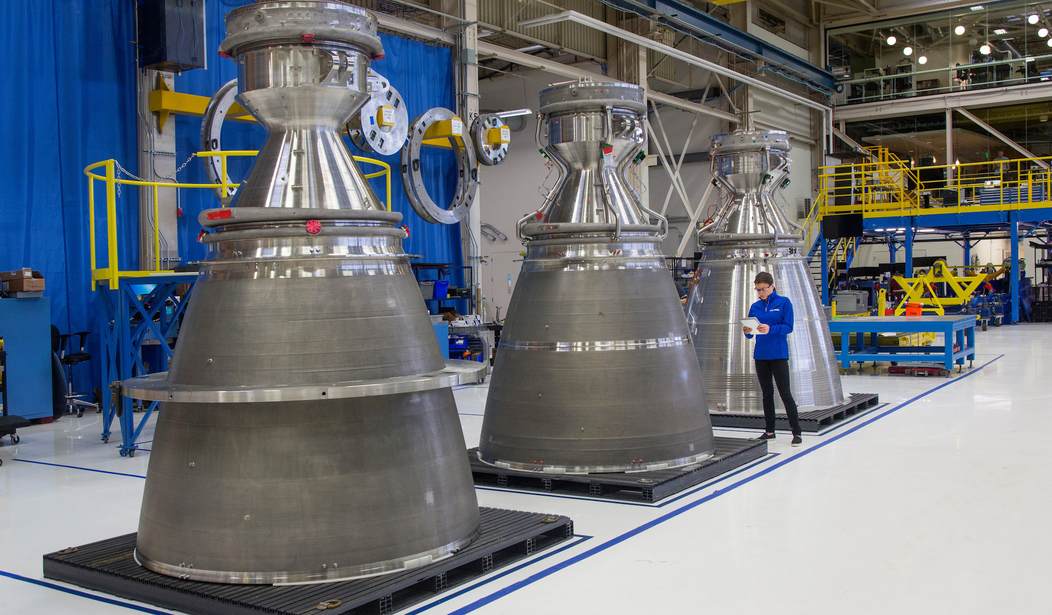Buried deep in this week’s Rocket Report is news that Blue Origin’s much delayed — but strategically vital — BE-4 rocket engine might be delayed once more.
Ars Technica’s senior space editor Eric Berger (my go-to guy for all things space) reports that “Blue Origin has yet to begin testing the two BE-4 rocket engines that will power United Launch Alliance’s expendable Vulcan rocket on its first flight.”
“Because the first flight engine has not yet been shipped,” Berger notes, “it seems likely that Blue Origin may not complete delivery of both flight engines to United Launch Alliance (ULA) before the end of the first quarter of 2022.”
Vulcan is ULA’s follow-up to its long-lived family of Atlas rockets, set to become the backbone of the US military’s launch needs. The newest version, the Atlas V, has been flying for nearly 20 years. The Vulcan will have greater lift capacity and is supposed to be cheaper to operate than the Atlas.
Vulcan was designed to meet the requirements of the National Security Space Launch (NSSL) program for the Space Force and our intelligence agencies — i.e., spy satellites and protecting our satellites from Chinese or Russian aggression.
There’s just one problem: Vulcan flies on Blue Origin’s BE-4 rocket engines and the company has yet to deliver even one to ULA.
Also for our VIPs: Dear Joe Biden: Do Yourself a Favor and Quit
Originally, the Jeff Bezos-owned rocket company was to begin deliveries of BE-4 four years ago.
Already more than 3 years into development our BE-4 will be ready for flight in 2017! pic.twitter.com/UppZweI7So
— Blue Origin (@blueorigin) June 5, 2015
Here we are, nearing the end of 2021, and Blue Origin has yet to deliver the two working engines it had promised ULA they’d have before the start of 2022.
Last summer, Berger wrote that “increasingly appears to be a ‘stretch’ goal.”
ULA CEO Tony Bruno tweeted early Thursday that things are “looking good” for his first pair of BE-4 engines because “Major milestones recently passed in prequal testing. Running like a top. All nominal.”
While that’s good news, Bruno also says that his first engines are still “moving through the factory.”
Berger says the current situation described in such positive language by Bruno still “raises questions about whether Vulcan will make its debut launch next year.”
ULA had originally expected Vulcan to carry its first payload into space by 2019.
In tangentially related news, Blue Origin rival SpaceX expects to send its massive (and revolutionary and fully reusable) Starship two-stage rocket on its first orbital test flight in January or February of next year, with commercial launches hopefully beginning in 2023.
While SpaceX founder Elon Musk doesn’t always meet his self-imposed deadlines, Starship development and testing have been moving at a breakneck pace.










